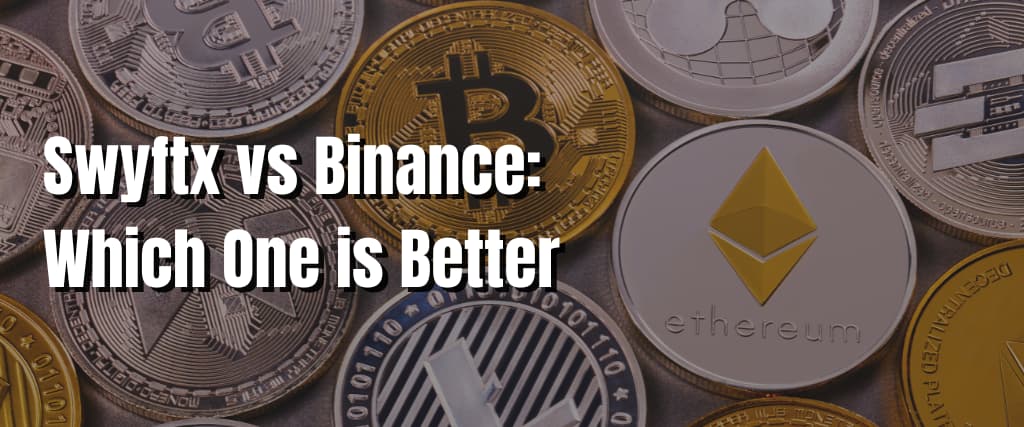
The number of individuals who own and hold bitcoin can signify acceptance by many people. Although nobody can ever know the exact number of people using bitcoin globally, estimations can be made.
Analysis of the bitcoin amount held in various addresses can help approximate the population size that owns bitcoin—this is the most common estimation method.
By 2021, there was an estimate of 106 million bitcoin owners.
Key Facts About Bitcoin Users

BTC Owners
106,000,000
BTCTraders
53,000,000
Daily BTC Users
400,000
BTC Wallets
200,000,000
Daily BTC Transactions
270,000
Americans BTC owners
22%
Americans that know about BTC
89%
This estimation method has three major concerns:

A single individual can own several wallets and addresses – If you own five bitcoins on your laptop and one on your iPhone wallet, and each address represents one person, then this counts as two individuals instead of one. Most people have more than a hundred addresses and three to ten separate wallets.
Most users don’t move BTC off the exchange – most people usually don’t create BTC wallets; they use centralised services.
Some services hold BTCs in a single address belonging to several people – Bitifinex, a BTC exchange with millions of clients, holds more than one hundred thousand BTCs in a single address. If each address represents a single person, this would count as just one individual and not thousands of users’ BTCs.
Another common estimation method is to confirm the total number of accounts.
A few exchanges disclose their user counts, while some require approximation by reporting their guest counts or examining their trading volume.
This method has four major concerns:

Several accounts: users can own multiple exchange accounts. For example, one person can create an account with Gemini, Kraken, and Coinbase.
Additional coins: most exchanges provide other cryptocurrencies. An individual could sign up and purchase litecoin only and not BTC.
Fake accounts: some exchanges fake their visitor and volume counts to look higher than the actual counts.
Inactive accounts: a user can open an exchange account, purchase BTC, and sell it afterwards. This still counts as a user account in the exchange’s database, even if it doesn’t own any BTC.
According to a survey conducted by Pew Research in September 2021 on crypto ownership and awareness, among 10,371 adult US citizens, 16% of them had used, invested, or traded cryptocurrency. The percentage increased to 43% for individuals between 18 to 39 years.
The population of bitcoin owners depends on how you interpret “own”. Suppose owning BTC means holding at least a dollar worth of bitcoin in your BTC wallet, then there can’t be more than 30.5 million owners.
On the other hand, if owning BTC entails holding any BTC in a centralised exchange or wallet, then the study by Pew Research makes sense. Most bitcoin owners store their coins on centralised services.
A study reveals approximately 25 million crypto traders outside Europe and the USA. Therefore, it’s likely that there are more than 100 million bitcoin owners. This means that around 1.3% of the global population owns BTC.
How Many Daily Users Does BTC Have?

This section discusses on-chain BTC users and does not include centralised services or exchange transactions.
The BTC network processes over 270,000 transactions daily—a single transaction can have several recipients.
The daily number of active addresses ranges from 400,000 to 800,000. This signifies that approximately 300,000 to 500,000 unique customers receive or send BTC daily.
Active addresses per day dropped to approximately 720,000 in March 2021, regardless of an increasing price. This indicates that users are not moving funds around and are holding their positions to get more significant gains.
Most individuals use BTC daily by saving. Users who have funds stored in BTC are “using” it to save or invest but aren’t likely to carry out daily transactions. That’s why we must consider the number of BTCs in wallets.
How Many BTC Wallets Exist?

You can never know!
First, we must define a BTC wallet. Is it a wallet where BTCs are stored? Do wallets that received BTCs sent them and are currently empty count as wallets? Does an exchange that permits you to send or receive BTCs count as a wallet?
Blockchain.com has 76 million wallets, while Coinbase has over 68 million accounts—a total of 144 million wallets.
There are hundreds of more wallets with private data. As stated earlier, there are approximately more than 100 million bitcoin owners, so several users have opened wallets previously but don’t have any BTCs anymore. Most users also have multiple wallets.
Several Coinbase and Blockchain.com wallets are empty since only approximately 64 million UTXOs exist.
Data shows that:

There possibly has been over 200 million or billions of wallets created during BTC’s existence.
The number of active wallets cannot exceed 64 million since approximately 64 million UTXOs.
A single BTC wallet can hold several UTXOs, so there are probably less than 64 million wallets in existence.
How Many People are Conversant with Bitcoin?

Approximately 90% of Americans, 93% of Brits, and 88% of Japanese know about Bitcoin.
Other reports state that 66% of Europeans have heard about BTC, with 79% in Austria and 78% in Poland.
40% of people in China have an interest in investing in BTC.
Populations in developed nations are at least quite conversant with Bitcoin.
As per the above numbers, at least 2 billion people know about Bitcoin.
How Many Coinbase Users are There?

The Coinbase website claims to have over 56 million users. They currently have more users than Charles Schwab.
How Many People Believe we will be Using BTC in the Next Ten Years?
Several surveys have been conducted to get participants’ opinions about the likelihood of people using Bitcoin in the next ten years.
The older generation is, as expected, pessimistic about this happening. On the other hand, younger people are optimistic that it will happen.
Nevertheless, there has been a significant increase in positivity among all age groups in the last two years.
What’s the Total Number of Global Bitcoin Traders?

According to a report by CH&Co, bitcoin traders globally ranges between 51.2-52.4 million.
Here’s the categorisation based on the country:
New Zealand and Australia: 400,000
Latin America: 1.5 million
North America (Canada & USA): 15.3 million
Europe: 10 million
Africa: 1.6 million
South Korea: 5 million
Rest of Asia (besides Japan and Korea): 15.3 million
Japan: 6.75 million
Is the Number of Bitcoin Users Growing?

This question is difficult to answer. Let’s go over some data.
According to Blockchain.com, as of January 1, 2020, there were 45million users. By January 1, 2021, the number had grown to 63.5 million. This translates to a 70% increase in a year. The number of users had increased to 72 million by April 2021.
Interestingly, the number of unspent Bitcoins (UTXOs) grew from 64 million on January 1, 2020, to 65 million by January 1, 2021, thus marking a 7% increase.
Frequently Asked Questions
1. How Many Users Does DOGE ( Dogecoin) Have?
The number of DOGE users has grown recently. The growth is due to large market capitalization and mentions from Tesla founder and billionaire Elon Musk. As of now, DOGE has approximately one million users.
2. How Many Users Does Eth (Ethereum) Have?
It is difficult to ascertain the exact number of Eth users. However, recent estimates suggest that Ethereum has approximately 10 million users in the whole world.
3. How Many People Have a Minimum of One Bitcoin?
By November 23, 2021, the number of addresses with a minimum of one bitcoin was 818,923. However, this doesn’t mean that there are 818,923 who have at least one BTC or more.
For one thing, there are individuals with multiple addresses which have one BTC or more in them. It is challenging to establish how many addresses belong to one person. However, this would mean fewer people have a minimum of one BTC in their accounts.
At the same time, some exchanges own addresses that have thousands of BTCs. These BTCs belong to many people with more than one BTC in that address. This would increase the total number of individuals with one BTC or more.
These factors make it impossible to know the exact number of people with more than one BTC. However, we can use this data to conclude that approximately one million users have at least one BTC.
4. How Many BTCs Does the Average Trader Own?
You can ascertain this by using the true average method. To use this approach, divide the total number of existing BTC by the current world population.
By November 23, 2021, the total number of BTC was 18,880,00, while the world population was 7,753,000,000.
18,880,000 7,753,000,000 = ~0.00244
Therefore the average individual has approximately 0.00244 Bitcoin.
But, not everyone in the world owns bitcoins. Therefore, the true average method is not completely accurate, but it is more likely to answer your question.
5. In Which Countries is BTC Considered as Legal Tender?
In countries ruled under a dollar hegemony, BTC is looked upon favourably. El Salvador is one such country. In June 2021, they passed a law that recognised BTC as legal tender.
This means that in the eyes of El Salvadoran law, BTC is equal to the US Dollar, which was the primary currency used in the country till that law came into effect.
The Salvadoran government also announced that they’d give $30 in BTC to every one of its 6.5 million citizens.
6. Which Countries Have Banned Bitcoin Users?
For people in office, BTC is a controversial asset. Printing money is one of the most special powers of every government.
Here’s a dynamic list of countries that have outlawed and unbanned BTC over the years:
Russia
Russia has never officially outlawed BTC. However, in February 2014, the government sent a warning to those trading bitcoin.
They warned that traders would be kept under suspicion of terror financing and money laundering if they continued trading. The alerts also said it was a crime to compete with the Ruble in Russia.
There’s only room for one currency in Russia—the Ruble—as per the citations.
To this day, BTC trading is still operational in Russia even though these citations have not been lifted.
China
In China, BTC trading has been outlawed multiple times.
The first BTC ban was in 2013 when the People’s Bank of China decided to outlaw BTC due to its association with the illegal gun and drug trade.
The ban was eventually lifted.
In January 2017, the Wall Street Journal and Bloomberg reported that plans were underway in China to halt cryptocurrency trading.
Although this ban never came into effect, the city of Shanghai stopped trading in digital currency exchanges.
In June 2021, China outlawed BTC mining. The government didn’t ban using BTC or owning it. However, prohibiting BTC mining is the harshest form of aggression towards BTC from the communist regime.
Thailand
In July 2013, a Thai-operated BTC trading company, Bitcoin Co, petitioned the Thai government for a cash exchange license to continue operations.
The Thai government declined the request, saying that BTC isn’t a currency. The company was allowed to present their case to the board to prove that BTC is a type of currency so that the government could reevaluate their application.
Soon after granting the appeal, Thailand’s Central Bank gave a preliminary ruling that using BTC as described by Bitcoin Co was illegal as there were no existing laws.
It is not known if there have been any legal developments since then. Nevertheless, there are Thai based cryptocurrency exchange platforms, and there are no repercussions for those trading BTC as long as the exchange has a Business Development Department e-commerce license.
In countries such as the United Kingdom, The United States, Australia, Canada, etc. BTC trading is legal.






